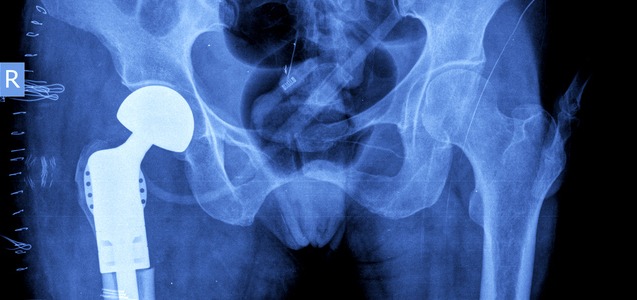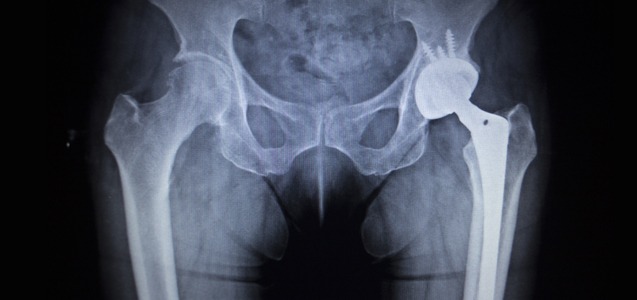
Persistent Abdominal Pain, Nausea and Vomiting May Be Caused By Defective Hernia Mesh
Reports show that more than 90 percent of the 1-million-plus hernia repair surgeries performed every year in the U.S. rely on the use of hernia mesh. Unfortunately, many of these mesh products have been found to be defective. In fact, hernia mesh manufacturers have recalled more than 211,000 units of defective mesh from 2005 to...
CONTINUE READING
Metal on Metal Hip Replacements Linked to Serious Neurological Side Effects
A 2017 Health Watch study reported that elevated blood metal levels from metal-on-metal hip replacements are toxic to the brain. The findings of this research confirm an alarming and previously unknown risk of metal-on-metal hip replacements known as Arthroplasty Cobalt Encephalopathy (ACE). This condition includes a number of serious neurological side effects, including mood swings,...
CONTINUE READING
Smith & Nephew: the List of Defective Hip Devices Keeps Growing
Hundreds of individuals have filed lawsuits against Smith & Nephew for injuries related to this manufacturer’s defective metal-on-metal hip implant products. In 2017, a multi-district litigation (MDL) was formed to consolidate certain Smith & Nephew hip implant lawsuits into a single federal district court in Baltimore, Maryland to more efficiently handle these complex cases. Originally,...
CONTINUE READING
Stryker LFIT V40 Update
In August 2016, Stryker recalled its LFIT V40 femoral head hip implant based on higher than expected taper failure rates. A taper lock failure occurs when the femoral head of the hip implant comes loose from the stem of the hip implant. Many people implanted with this faulty device suffer from severe pain, inflammation, loss...
CONTINUE READING
Another Stryker Hip Recall: LFIT V40
The reputation of medical device manufacturer Stryker Corporation has been called into question in the past, after having to recall two of its metal hip replacement systems in 2012. More recently, the company once again faces criticism and outrage for its negligence in distributing yet another defectively designed hip replacement system. On August 29, 2016,...
CONTINUE READING
Diagnosing Hip Implant Pseudotumors with MARS MRI
The symptoms related to defective metal-on-metal hip implants can be extremely overwhelming for some patients. For many individuals, the device that was supposed to restore their quality of life has instead resulted in pain and immobility. Several of the negative side effects of the metal-on-metal hip implants can be difficult to diagnose. Fortunately, there is...
CONTINUE READINGMetal-on-Metal Hip Implants and Metallosis
Metal poisoning occurs when toxic levels of metal build up in the body causing damage to tissues, bones, and the nervous system. One type of metal poisoning, called metallosis, can occur as a side effect of joint replacement surgery using metal components such as those in metal-on-metal hip implants. Medical device manufacturers like Smith &...
CONTINUE READING
Smith & Nephew BHR Recall
New information shows greater insight into the negligent behavior of global medical technology company Smith & Nephew concerning its defective hip replacement products. After the recall of the Birmingham Hip Resurfacing device (BHR) in June 2015, evidence shows that the company failed to accurately inform both physicians and patients of the proper measures to take...
CONTINUE READINGMore Bad News for Smith and Nephew
Smith & Nephew continues to issue additional recalls for its defective hip implant devices. By now, Smith & Nephew has established a clear pattern of manufacturing faulty and dangerous hip devices that harm rather than help innocent users of those products. In June of 2012, Smith & Nephew issued a recall of its R3 Acetabular...
CONTINUE READING
Smith & Nephew Multi-District Litigation Comes to Maryland
People from all over the United States suffering from injuries due to Smith & Nephew Birmingham Hip Resurfacing (BHR) and R3 Acetabular system hip devices are now closer than ever to receiving the compensation they deserve. On April 5, 2017, a federal Multi-District Litigation (MDL) was created to combine over 40 federal cases into one...
CONTINUE READING